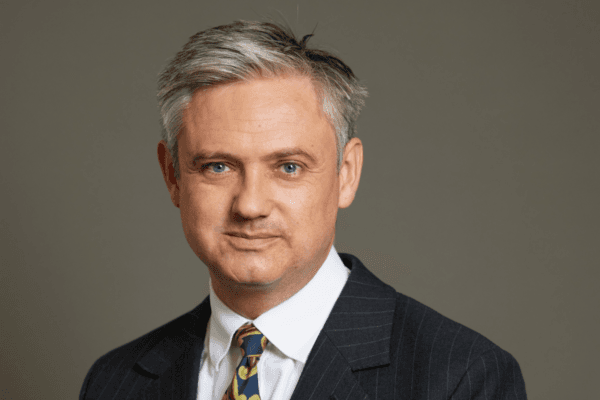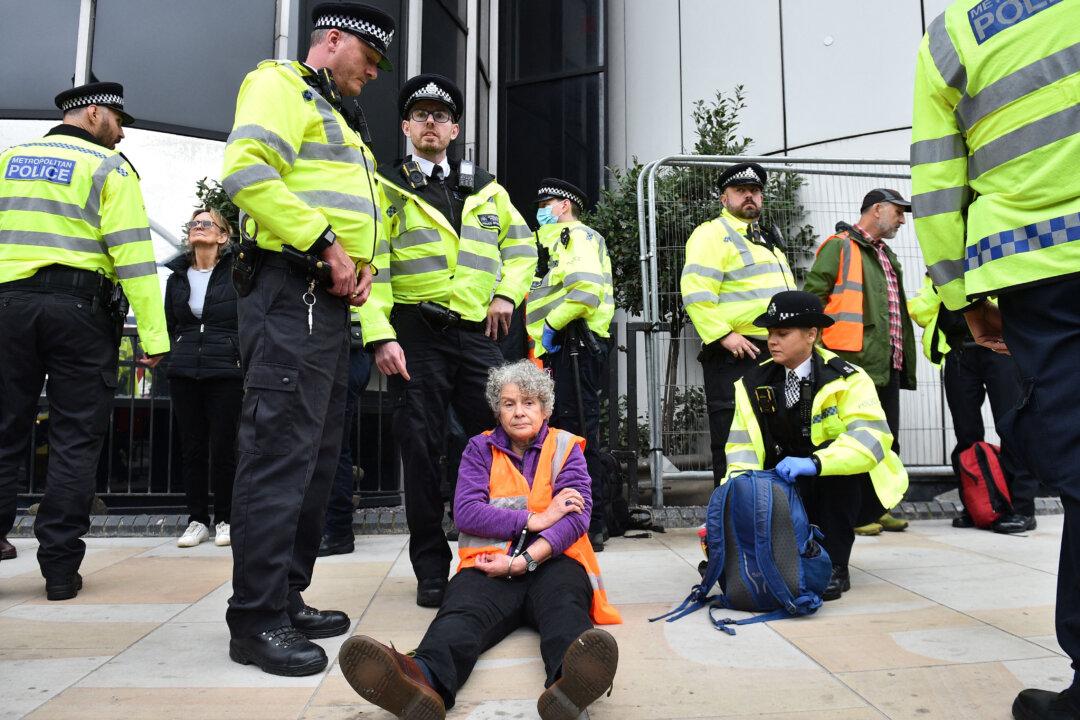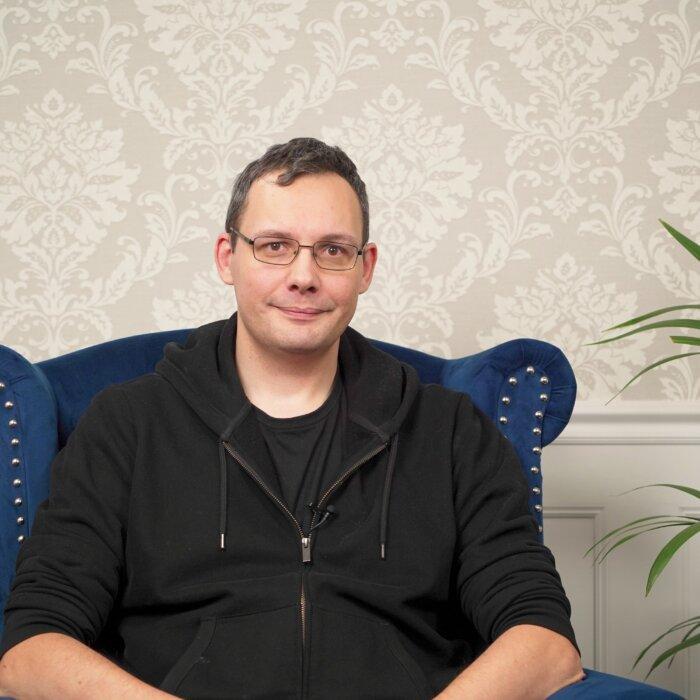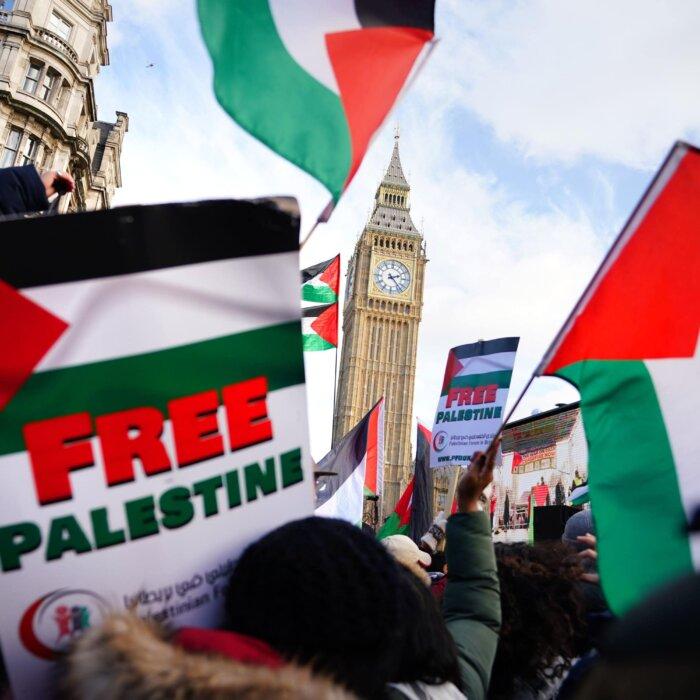Left-wing extremists want to “undermine” basic democratic principles using criminal tactics to “force” changes they want, the government’s adviser on political violence and disruption has said.
Lord Walney also warned that public order laws were being “substantially tested” by the weekly pro-Palestinian demonstrations, saying there were “extreme elements” within the these protests.
The Home Office adviser made the remarks in an interview with Sky News host Trevor Phillips on Sunday ahead of the publication of his independent review into political violence and disruption. The review was commissioned three years ago and is due for publication on Tuesday.
Lord Walney said he had been tasked with looking at domestic extremism originating from Islamism, the far right, and the far left. He emphasised that during the review he focused on whether far-left organisations had received “significant attention” into how they “seek to disrupt and undermine our country.”
Democracy ‘Under Threat’
Asked whether he thought far-left extremism presented a serious problem, Lord Walney replied: “I think we are seeing a democracy at the moment which feels under strain and under threat. We’ve got lawmakers who are facing violent threats and intimidation on a daily basis.”He continued that the levels of public protection funding for MPs had been “soaring” in recent months, “so you have a level of threat and intimidation that has been placed on MPs through, principally, the extreme elements of the pro-Palestinian protests. You’re having council meetings disrupted.”
“Many people talk about this as an extension of our democracy, rather than—what I think it is, actually—unacceptable attempts to coerce and intimidate lawmakers and the public,” he added.
Criminal Tactics
Lord Walney also accused far left groups of using “criminal tactics” as a “very deliberate means to try to force the conversation towards the kinds of change that they want, rather than engaging in our democratic channels.”The pro-Palestinian protests, he said, had a “substantial level of criminality, disorder, and anti-Semitic content around the margins,” which is “a concern in itself.” He said his worry over how the public order framework has been “substantially tested” by these weekly demonstrations, with police forces having to make same-day judgements as to whether there is a threat of serious disorder at a particular march.
“I’ve been concerned over many months now that the police do seem limited in what they’re able to do to be able to balance people’s right to protest with the cumulative impact of having marches through central London on a weekly or very regular basis, which is making substantial parts of the community—the majority or sizable parts of our Jewish community—in London apprehensive, at best, about going into the centre of the city,” he said.
Batley Teacher
Mr. Phillips cited a survey from November which suggested nearly one in five teachers in subjects like art and English were self-censoring to prevent religious offence.Lord Walney said that he believed the sample could be a true reflection of the wider education establishment where there is uncertainty over the “acceptable boundaries of freedom of expression, particularly in terms of religion.”

The anti-extremism adviser reminded the host of the context of the poll: the religious studies Batley Grammar School teacher forced into hiding in March 2021 following accusations of blasphemy.
“We have got a teacher from Batley, West Yorkshire, who is still in hiding three years after the controversy over his showing [pupils] an image of the Prophet Muhammad. That is totally unacceptable,” he said.







